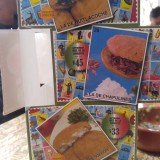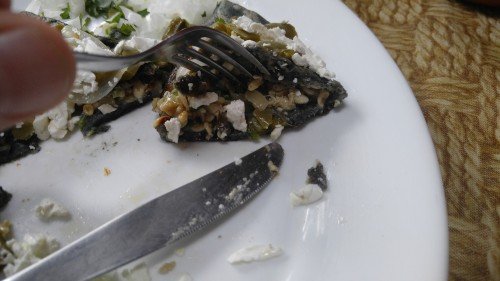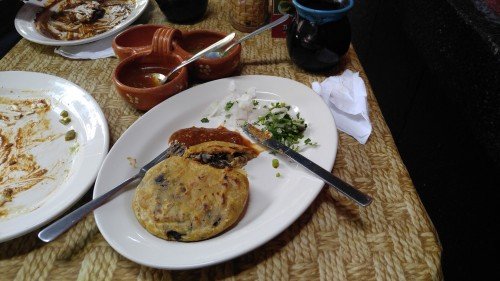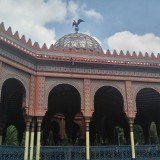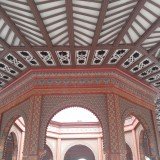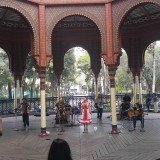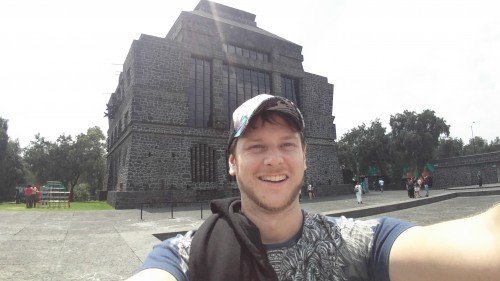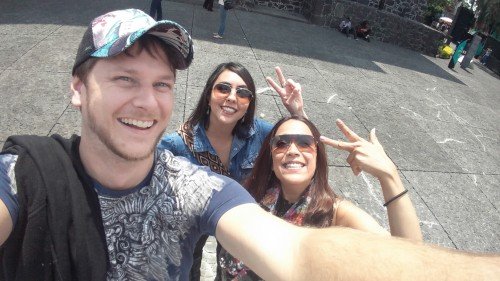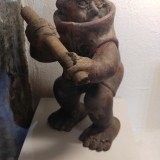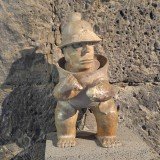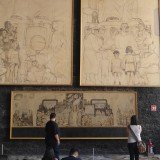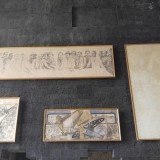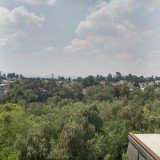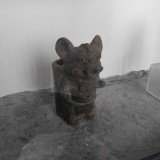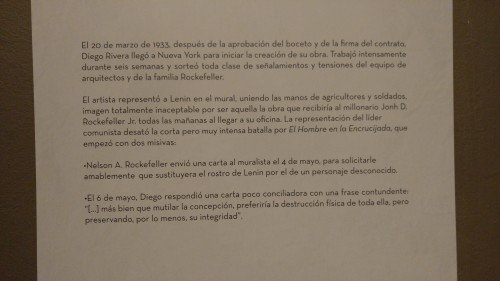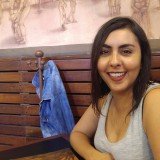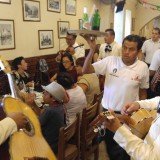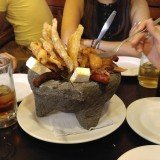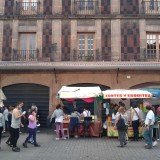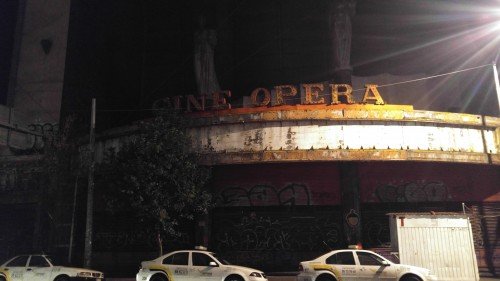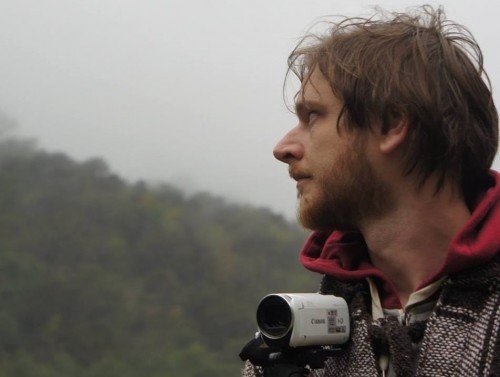I slept quite well on the floor of the café. I got up and folded up the blanket, mat and coffee sacks like a good guest. María and Sergio prepared some breakfast of tomato jam, milk kefir, and granola, mixed together in a tumbler. They said "You're going to try some prehispanic cuisine today. You're going to try Mexican caviar."
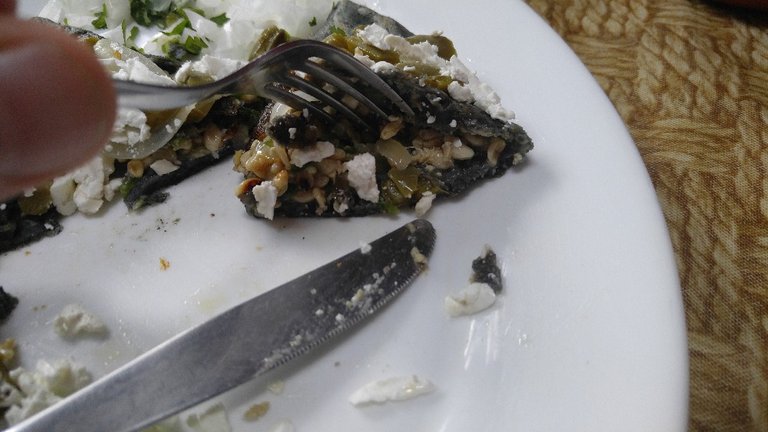
Oh yeah, what's that? "Escamoles. Ant eggs. You'll try it, right?"
The digusted look on my face said no, but my mouth said yes. María is French, so I'm not really sure how she has the stomach for this type of shit. I guess they do eat a lot of odd things in France, so she was prepared when she arrived in Mexico.
Prehispanic cuisine
We walked down and I had a look at the menu. Gorditas with crickets, chinicuiles - otherwise known as the worm in the tequila/mezcal bottle - and cocopaches - cockroach-lookin' motherfuckers - and escamoles. And of course, huitlacoche - a fungus that grows on maize, once known as "corn smut" and labelled a pest in the US, but now known as "the Mexican truffle".
The word "huitlacoche" means "raven excrement" in Nahuatl, presumably because, well, that's what it looks like. Once I would have recoiled at the thought of it, but that day I welcomed it as one of the most normal things on the menu. I ordered a gordita with huitlacoche, a tlacoyo with beans or something equally boring. María ordered a tlacoyo with escamoles for us to share.
(Edit: perhaps my etymology is wrong)
If you look at the picture of the tlacoyo, you can see the eggs, looking like big slimy grains of rice. I hesitated before eating it.
"Come on Kurt," said Sergio. "The world is made up of ideas - that's what you were telling us last night. Eating it is just an idea!"
"Alright, alright." I had a couple of bites. An escamol got stuck between my lip and my teeth. I fished it out with my tongue, and squished it between my molars. Mmm... salty.
Kiosco Morisco
After asking for the bill four times, it finally came. We paid and walked to Kiosco Morisco. It was built by a visiting Arabian architect, and has long been a symbol of peace between nations. At least, that's what people say. María explained the real history of the rotunda to me, which had nothing to do with Arabians - which I promptly forgot, and I suppose that's why the popular legend survives.
The Anahuacalli Museum
I met up with Rubi and Yveth at the Anahuacalli museum, designed by Diego Rivera, mainly to house his collection of prehispanic artefacts. Some of them look like men wearing garbage bins, pretty cool. Others are in the shape of dogs, as the dog was very important to certain Mesoamerican cultures, being seen as a guide to the afterlife. You might recognise the museum from the scene in the popular series Sense8.
I walked through the gallery next to the museum, which told a few stories about Rivera, and one in particular caught my attention. Rivera was contracted to paint a mural for John D. Rockefeller's grandson in the Rockefeller Center in New York City. Rivera decided to include a likeness of Lenin, close to the centre of the mural.


An important part of the story is summarised in this poem by E.B. White:
Rockefeller sent a letter to Rivera, asking him to change Lenin into just some dude. Rivera responded that, rather than change his artwork, he would prefer its complete destruction, and that way at least, the integrity of the work would be maintained.
I couldn't help but think of Ayn Rand's famous story The Fountainhead, her description of a perfect man, in which the protagonist Howard Roark finds that the Cortlandt building's plans have been modified, not built according to his plan, and thus decides to blow up the building. Rand, of course, was a staunch capitalist, and Rivera a communist, yet when I read the final line of White's poem ("We'll see if it is," said Rivera), I know that Diego is exactly the kind of man that Rand was describing - self-actualised, determined, and uncompromising.
The Coyoacana cantina
We went to a cantina in Coyoacán, which of course, wouldn't be complete without some mariachis playing brass instruments a foot away from our ears. We ordered a molcajete, that is, a big-ass mortar made from volcanic rock, in this case, filled with meat, cheese, and green salsa.
Skipping town
I said goodbye to Rubi and Yveth, gave them kisses on the cheeks, went to the café to pick up my stuff and gave a hug to Sergio and María as well. My next stop was Pachuca, Hidalgo, most famously known for its pasties, in a cultural line continued by the British miners who settled there.
I arrived in Pachuca, and with the assistance of my friend Fany, checked in to a cheap, but nice, hotel in the centre.
To be concluded...
Stay tuned for the final installment of my journey across Mexico in Pachuca and Real del Monte!
About me
The Paradise ParadoxMy name is Kurt Robinson. I grew up in Australia, but now I live in Guadalajara, Jalisco. I write interesting things about voluntaryism, futurism, science fiction, travelling Latin America, and psychedelics. Remember to press follow so you can stay up to date with all the cool shit I post, and follow our podcast where we talk about crazy ideas for open-minded people, here: @paradise-paradox, and like us on Facebook here -
Some other cool posts
Here are some other posts of mine to check out:
A Mexican Independence Day trip - ¡Viva México! - Day 1: San Miguel de Allende
¡Viva Mexico! Independence Day trip - Day 2: Wine and hangovers in Tequisquiapan
¡Viva México! Independence Day trip - Day 3: Breakfast in Tequisquiapan, Pulque in Mexico City

